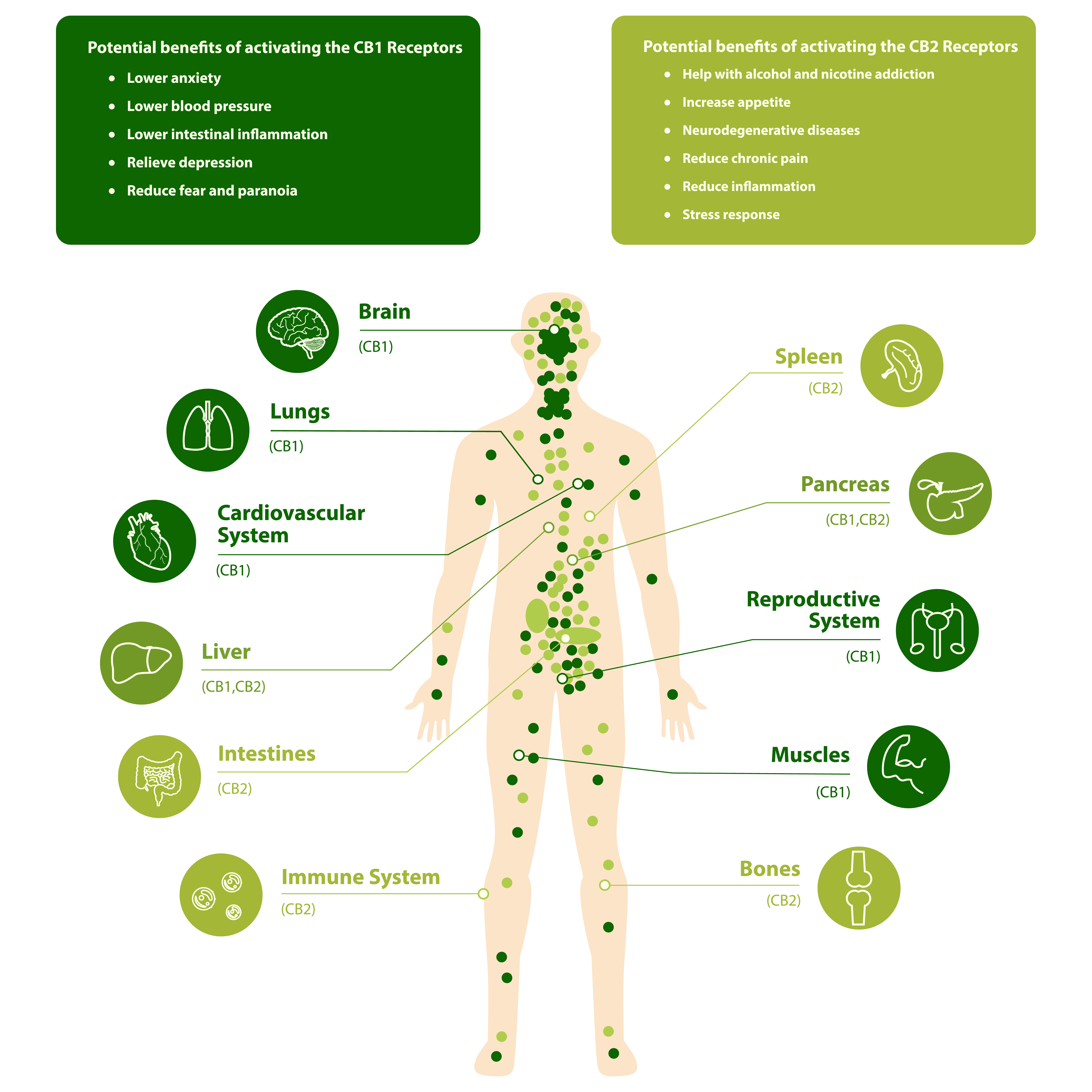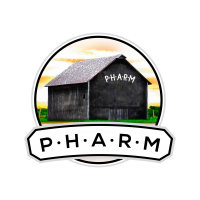
The endocannabinoid system (ECS) is a complex cell-signaling system identified in the early 1990s by researchers exploring THC. The ECS is functioning in your body, even if you don’t use cannabis. Our bodies naturally produce endocannabinoids and these receptors have shown to function more efficiently when phytocannabinoids are introduced, i.e. Hemp Oil.
Two main endocannabinoid receptors:
Phytocannabinoids from the hemp plant work with our bodies endocannabinoid system (ECS) to regulate a broad range of physiological processes that affect our everyday experience – our mood, our energy level, our intestinal fortitude, immune activity, blood pressure, bone density, glucose metabolism, how we experience pain, stress, hunger, and more.
If you imagine the body like a machine, each system works together to keep the machine moving. The immune system is like a filtration system, the brain is like the motherboard, and endocannabinoids help to maintain these systems.
Preclinical and clinical investigations have studied a wide variety of health benefits of Hemp Oil, in particular the cannabinoids and other biomolecules that are extracted from it, including:
Alzheimer’s, dementia, Parkinson’s, multiple sclerosis, epilepsy, Huntington’s chorea, stroke, traumatic brain injury
Some studies have indicated that phytocannabinoids extracted from hemp may reduce epileptic seizures [8] and provide neuroprotective effects to potentially reduce the risk for Alzheimer’s [9].
According to the National Institute of Health, manipulating the endocannabinoid system by introducing external phytocannabinoids could be useful in regulating a variety of other medical ailments, including:
Below is a list of additional studies that investigate the potential benefits of phytocannabinoids extracted from hemp:
Esposito, Giuseppe, et al. ” PloS one 6.12 (2011): e28668
O’Connell, Brooke K., David Gloss, and Orrin Devinsky. Ep. & Behavior70 (2017): 341-348.
Leweke, F. M., et al. Translational psychiatry 2.3 (2012): e94.
Ramer, Robert, et al. The FASEB Journal 26.4 (2012): 1535-1548.
Massi, Paola, et al. Journal of pharmacology and Experimental Therapeutics 308.3 (2004): 838-845.
Shrivastava, Ashutosh, et al. Molecular Can. therapeutics (2011): molcanther-1100.
McAllister, Sean D., et al. Breast Can. research and treatment 129.1 (2011): 37-47.
Ramer, Robert, et al. Biochemical pharmacology 79.7 (2010): 955-966.
Vaccani, Angelo, et al. British journal of pharmacology 144.8 (2005): 1032-1036.
NOTE: Before reading more about our products, make sure you consult your physician or other medical professional prior to taking them. The scientific studies that are presented do not represent you or your specific conditions. Many of the studies are preclinical and have not been re-studied in humans.
DISCLAIMERS: The statements on our website have not been evaluated by the Food and Drug Administrations. PHARM Hemp products are not intended to diagnose, treat, cure, or prevent any disease. The studies that are described on this page were not conducted by PHARM Hemp, LLC. They are provided for informational purposes only. We encourage all people interested in hemp to do their own research on the risks and benefits of hemp prior to taking it. PHARM Hemp, LLC is not liable for damages arising from the use of this information.
